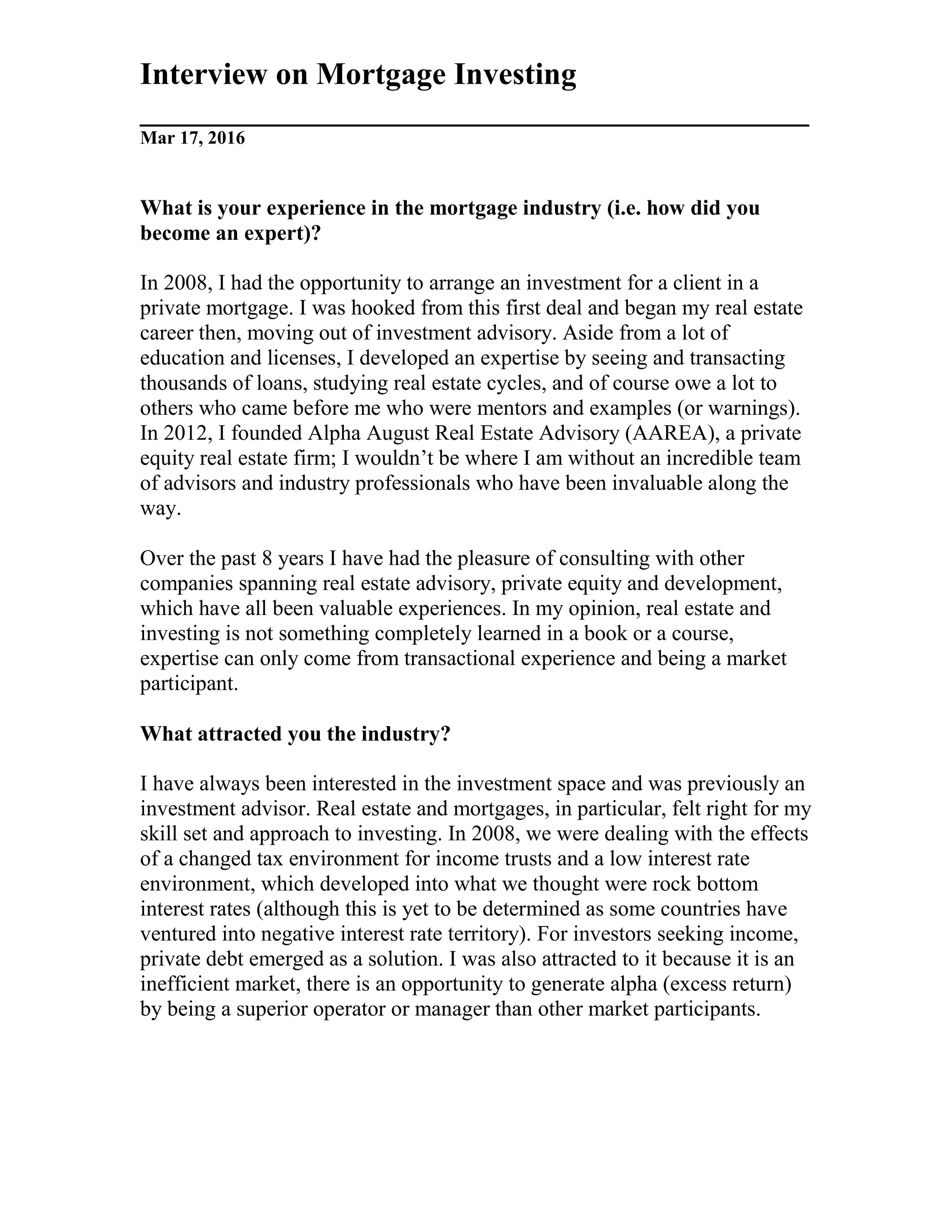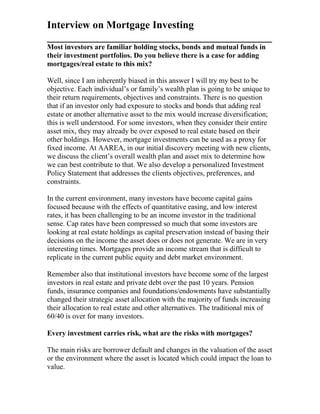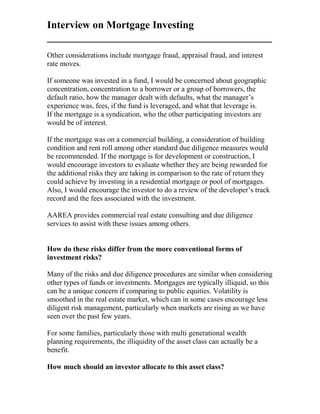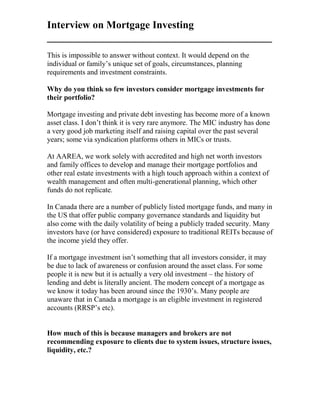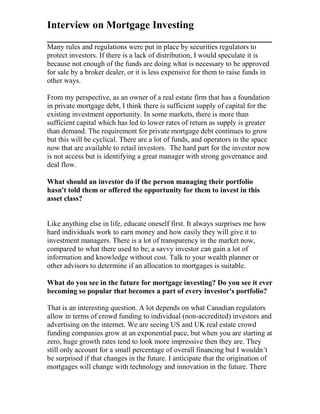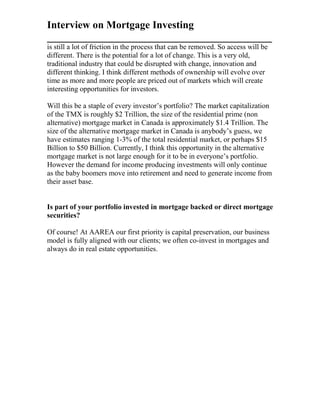The expert became interested in the mortgage industry after arranging their first private mortgage deal in 2008. They went on to found their own real estate advisory firm in 2012. Mortgage investing can provide diversification and income that is difficult to find elsewhere given today's low interest rate environment. The main risks are borrower default and changes in property valuation or market conditions. An investor's allocation to this asset class depends on their unique goals, circumstances, and constraints. The expert believes mortgage investing will continue growing as an option for investors seeking income in retirement.
